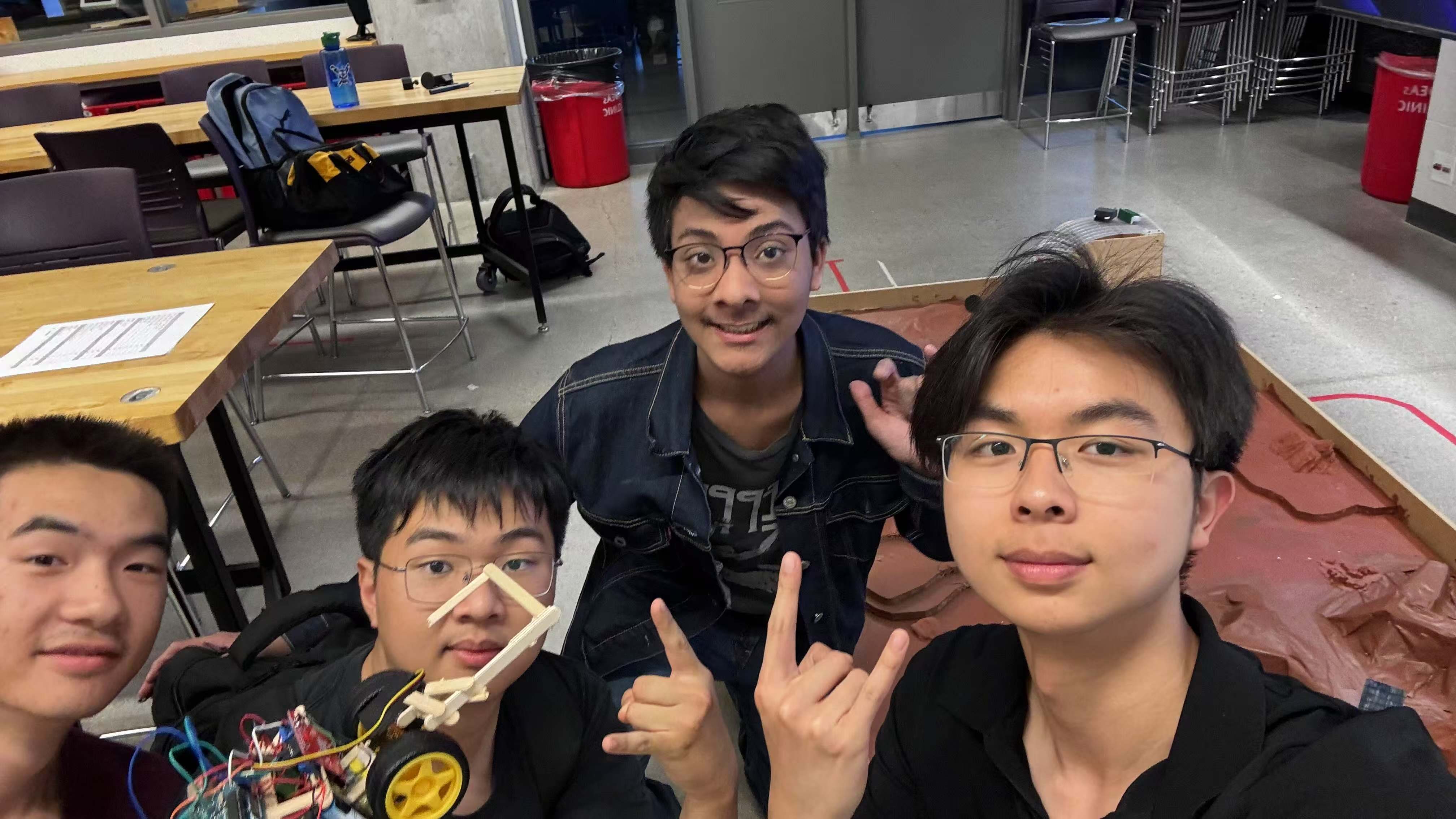
A small-scale Mars rover built in 6 hours during the Senior Waterloo Engineering Competition by a 4-member team. Designed with a wooden frame, 4WD system, and a servo gripper, the project focused on adaptability under tight time and tool constraints. As the electronics and firmware lead, Ryan developed fault-tolerant firmware using LEDs and serial terminals for debugging and ensured safe system behavior under power fluctuations, showcasing resourceful problem-solving and fast-paced hardware integration.
This weekend, I had the opportunity to attend my first Senior Waterloo Engineering Competition with my classmates where our 4 member team(Ryan Qin, Raymond Wu, and Eric Zou, and Ishan Leung) worked on designing a small scale mars rover.
Built within resource(tools and hardware availability) and 6 hour time constraint, we designed our mars rover with a single servo gripper along with a 4 wheel drive system using wooden sticks as our frame.
💡 From the challenges, Here's what I learned from as a electronic and firmware design member of the team:
1) Resourceful debugging under constraints - While I'm experienced in using logic analyzer and oscilloscope to debug my firmware and look for hidden defects, this competition challenged me to work with limited equipment to ensure fairness among team members. Thus, I had to switch to using serial terminal and LED indicators to manually troubleshoot the firmware and draw inferences. This experience reinforced the importance of flexible problem-solving and adaptability—especially for fieldwork or on-site projects where access to advanced tools may be limited.
2) Working within a tight time budget - In longer competitions, I typically have time to optimize my firmware's resource usage by assembly language functions and direct port register manipulation. However under this event's compressed timeline, I shifted to existing libraries efficiently meet team need including supporting hardware changes (e.g., switching from two steppers and a servo to a single servo). At the same time, I also ensured that the system maintained safe logic states, accounting for exception cases like serial disconnects and power brownouts. This experience emphasized balancing robustness and speed under time pressure.
If you would like to learn more about our Mars Rover design, please check out our full project on GitHub:🔗 https://github.com/RyanQin24/WEC-2025-senior-Competition/tree/main